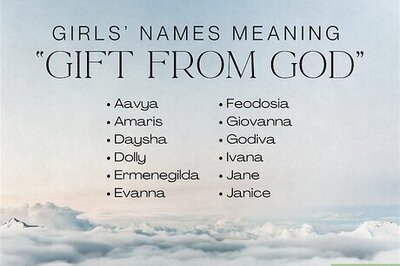
views
Muslim clerics across the country have requested the community members to avoid congregating in mosques and visiting graveyards on the occasion of Shab-e-Barat, which will take place on the intervening night of April 9 and 10. The Muslims bodies have issued advisory as Shab-e-Barat has fallen when the entire nation is under lockdown to curb the spread of coronavirus.
The ulema and clerics have also appealed to the masses to make diligent and wholehearted supplication before the Allah for themselves and for those who are facing challenges due to coronavirus.
Making appeals via tweets in Urdu, Delhi Police has also urged Muslims to not to go mosques and graveyards on the eve of Shab-e-Barat, also known as the night of forgiveness.
In Uttar Pradesh, Maulana Khalid Rasheed Farangi Mahali, a Sunni cleric and Imam of the biggest Eidgah in Lucknow, has also appealed to the Muslim community to offer prayers from within their homes. He also announced the cancellation of a scheduled Jalsa at Eidgah in Lucknow due to lockdown.
As preventive measure, the Karnataka State Board of Auqaf has suspended the prayers. Imarat-e-Sharia in Karnataka has also issued a similar advisory.
In Pakistan, its most populous province Punjab has suspended all the prayers and urged people to offer namaz at home.
What is Shab-e-Barat?
Shab-e-Barat is observed on the night between the 14 and 15 of Sha'aban, the eighth month of the Islamic calendar. In Islam, Shab-e-Barat means the night of forgiveness or Day of Atonement. It is also known as the night of blessings and luminosity. It is celebrated with traditional religious zeal and spirit every year.



















Comments
0 comment